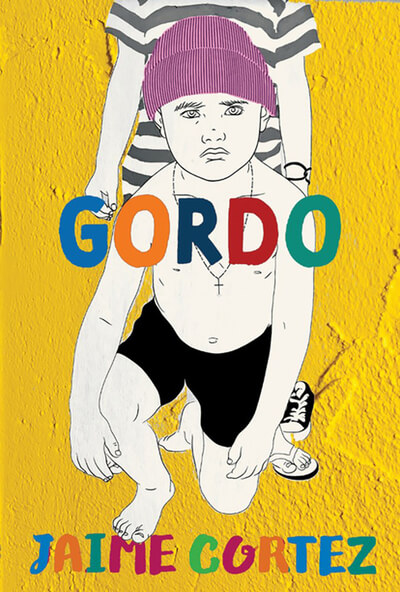These books jump out of the oven and onto your shelf.
The holidays are galloping upon us like so many overachieving reindeer, and that means many of us are in vapor lock, wondering what to get our gastronaut (please, NOT “foodie”) friends and family. The possibilities run into the thousands, if not millions, but we’ve trekked off the road more traveled to discover some volumes that will surprise and delight.
Anthony Bourdain: The Last Interview edited by Melville House
In Anthony Bourdain: The Last Interview, the late chef, author, journalist and raconteur, never shy about expressing his opinion, states his case about food: “Well, there’s nothing more political. There’s nothing more revealing of the situation on the ground, whether a system works or not.” His words serve as a good guide through all these books, and in a person’s wider eating life.
Women on Food edited by Charlotte Druckman
Historically speaking, the “system,” especially as it pertains to women in restaurants, hasn’t always worked all that well. While the Irma Rombauers and Julia Childs and M.F.K. Fishers of the world were given wide berth in waxing poetic while guiding homemakers, in the pro kitchens of the world they were often overlooked or demeaned (or worse). No more. In Women on Food, editor Charlotte Druckman enlists the aid of a talented brigade, including the likes of Nigella Lawson, Dorie Greenspan and Julee Rosso, to articulate the state of the food world from a female perspective. As the joke goes, “What do you call a woman chef?” “Chef.” I am in sympathy with the authors in hoping for a day, and soon, when we look back on a book like this and wonder why it was necessary.
Chicken Genius by Bernard Radfar
Moving from the political to the aesthetic, Japan, perhaps more than any nation, has given life to the adage that “we eat with our eyes first.” And so it is with Bernard Radfar’s Chicken Genius: The Art of Toshi Sakamaki’s Yakitori Cuisine. Aram Radfar’s informative, imaginative photography, alongside the book’s step-by-step recipes and techniques, is a delight to the eye as well as the appetite. It may take you a while to bring your knife skills up to pro level, but this book will aid you at every step, starting with the proper way to disassemble a whole chicken with some degree of craft, and just possibly art.
Delicious Metropolis by Wayne Thiebaud
Speaking of art, let’s turn to Wayne Thiebaud. He couldn’t have grown up anywhere other than Southern California for his canvasses to look the way they do. In Delicious Metropolis, he rolls out a dessert cart overflowing with pinwheel lollipops, pastel-frosted pastries and the promise of an endless summer, not a cloud in sight . . . unless it’s made from whipped cream.
Eat Joy edited by Natalie Eve Garrett
And if every picture tells a story, it’s also true of every recipe, as Natalie Eve Garrett and her contributors prove in Eat Joy: Stories & Comfort Food From 31 Celebrated Writers. From Anthony Doerr’s hilarious recipe for brownie mix (“Sit on floor. Cut open bag of brownie mix. Add water. Stir. Eat with fingers. Repeat when necessary.”) to Rosie Schaap’s moving tale of her first Passover Seder as a widow in New Mexico, Garrett has gathered not only the “what” of her talented essayists’ relationships with food, but more importantly the tragedies and triumphs behind the “why.”
Vignette by Jane Lopes
If I were able to offer only one book to someone who cares to know about wine, it would be Jane Lopes’ Vignette: Stories of Life & Wine in 100 Bottles. Light and frizzante as a moscato but thoroughly researched, the book walks you through the often confusing world of viniculture with recommendations that will give you the confidence to peruse any carte du vin with authority.
Ruffage by Abra Berens
At a time when many of us are moving toward a more plant-based diet, Abra Berens’ Ruffage: A Practical Guide to Vegetables provides a veg-by-veg road map studded with tips, techniques and recipes geared toward getting the most out of the stuff we grow. Sure, you’ve grilled corn, but have you puréed it? Have you ever braised celery? Have you marinated peas? Berens not only shows you how but also explains why you should. It’s not strictly vegetarian, but it does place the plant at the center of the plate, rather than as an afterthought or mere side dish.
As Bourdain says in The Last Interview, “There are no secret recipes. There are no secret techniques. Everything that you learn in a kitchen you are either told, open-source . . . or you have learned it over time, painfully.” With these books, you can sidestep some of those missteps—or just look at the pretty pictures. Either way, you’ll come away with a greater appreciation of the culinary arts, both visual and practical.
Thane Tierney lives in Inglewood, California, and writes extensively on food-related topics both in magazines and on his blog, templeofthetongue.com.



















